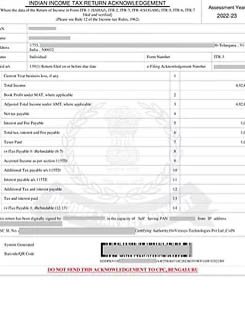ITR-3
Professionals and individuals operating sole proprietorship businesses in India are required to file the ITR-3 form.This form is meant for individuals and Hindu Undivided Families (HUFs) who earn income from business or professional activities.However, if an individual or HUF earns income as a partner in a partnership firm engaged in business, they cannot file ITR-3. In such cases, ITR-2 should be filed instead.

Private Limited Company:
Eligibility for filing ITR Form 3:
Individuals and Hindu Undivided Families (HUFs) earning income from operating a business or practicing a profession are required to file Form ITR-3. This form can be used if the assessee’s income falls under any of the following categories
- In addition to income from carrying on a profession or proprietary business, the return can also include income from house property, salary or pension, and income from other sources.
Who is not eligible to file an ITR-3 form?
If an individual or Hindu Undivided Family (HUF) is acting as a partner in a partnership firm engaged in business or a profession, they are not eligible to file Form ITR-3. In such cases, they must file Form ITR-2 instead.
Documents Required for Business Tax Return Filing ITR-3 return filing:
- Form 16 or Salary Slips (in case of income from salary)
- Rental Agreement, if any
- Proof of rental income, if any
- Savings Certificate/ Deductions eligible to claim U/S 80C
- Form 26AS
- monthly purchase bill & returns
- Monthly Sales Bill & Sales returns
- Challans for GST Tax Paid
- Day-to-day administration expenses and general expense details
- Fixed Assets Invoice Copy (if applicable)
- Investment details made with cash
- Investment details made through the bank
- Proof of Cash Inflow and Cash Outflow Sources
- Outstanding receivables and payables
- Bank Statement for the period starts from 1st April to 31st March.
- Bank loan information
- Proof of foreign income (if applicable)
- Details of Foreign Assets (if applicable)
